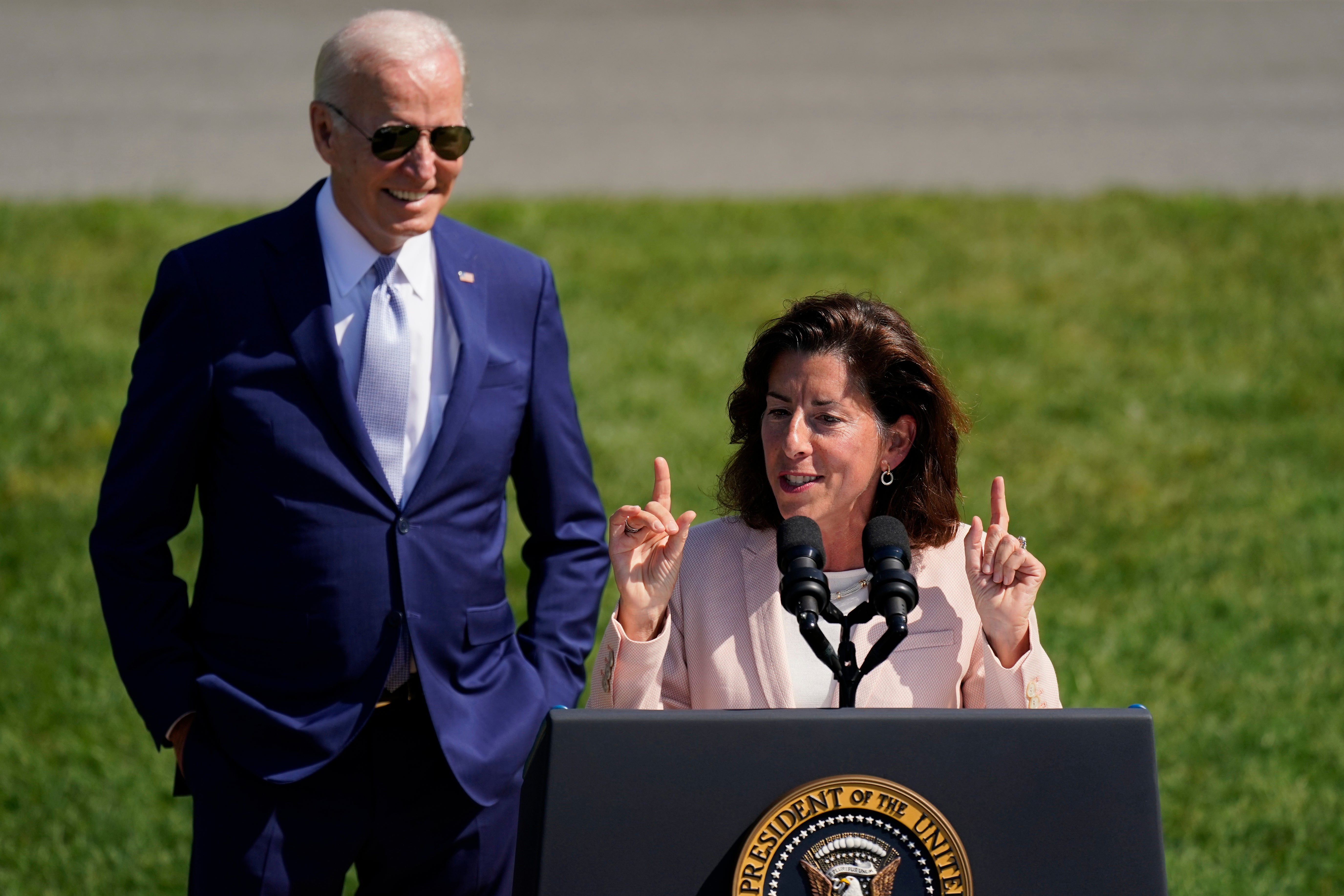Biden names technology hubs for 32 states and Puerto Rico to help the industry and create jobs
The White House says the dozens of U.S. technology hubs President Joe Biden is announcing will help communities across the country become centers of innovation critical to its competitiveness

The Biden administration is designating 31 technology hubs touching 32 states and Puerto Rico to help spur innovation and create jobs in the industries that are concentrated in these areas.
President Joe Biden is set to announce the hubs on Monday at the White House with Commerce Secretary Gina Raimondo.
“I have to say, in my entire career in public service, I have never seen as much interest in any initiative than this one," Raimondo told reporters during a Sunday conference call to preview the announcement. Her department received 400 applications, she said.
“No matter where I go or who I meet with — CEOs, governors, senators, congresspeople, university presidents — everyone wants to tell me about their application and how excited they are,” said Raimondo.
The tech hubs are the result of a process Raimondo's department launched in May to distribute a total of $500 million in grants to cities.
The $500 million came from a $10 billion authorization in last year’s CHIPS and Science Act to stimulate investments in new technologies such as artificial intelligence, quantum computing and biotech. It’s an attempt to expand tech investment that is largely concentrated around a few U.S. cities — Austin, Texas; Boston; New York; San Francisco; and Seattle — to the rest of the country.
The program, formally the Regional Technology and Innovation Hub Program, ties into the president's economic argument that people should be able to find good jobs where they live and that opportunity should be spread across the country, rather than be concentrated. The White House has sought to elevate that message and highlight Biden's related policies as the Democratic president undertakes his 2024 reelection bid.
“These Tech Hubs will catalyze investment in technologies critical to economic growth, national security, and job creation, and will help communities across the country become centers of innovation critical to American competitiveness,” the White House said Monday in an emailed statement.
The 31 tech hubs reach Oklahoma, Rhode Island, Massachusetts, Montana, Colorado, Illinois, Indiana, Wisconsin, Virginia, New Hampshire, Missouri, Kansas, Maryland, Alabama, Pennsylvania, Delaware, New Jersey, Minnesota, Louisiana, Idaho, Wyoming, South Carolina, Georgia, Florida, New York, Nevada, Missouri, Oregon, Vermont, Ohio, Maine, Washington and Puerto Rico.
Bookmark popover
Removed from bookmarks